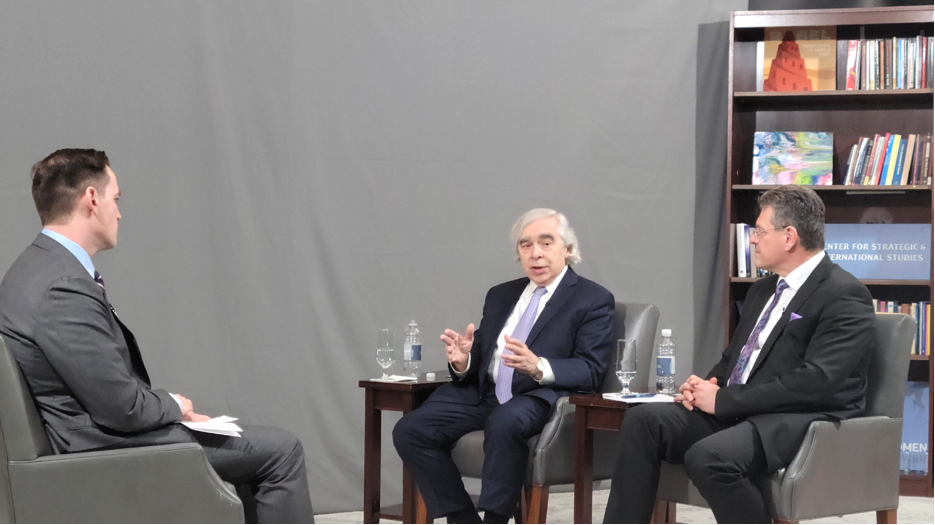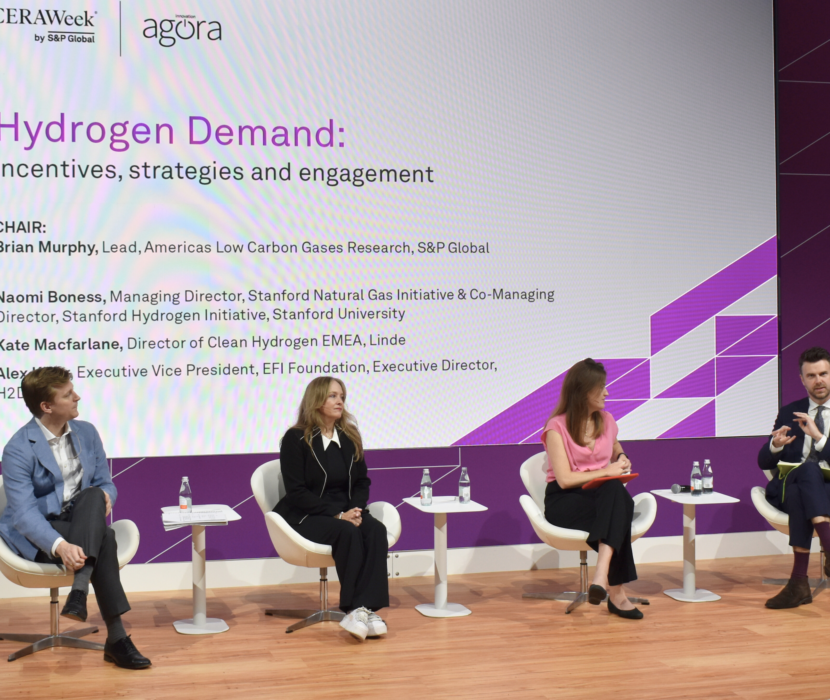
Energy Futures Initiative (EFI) CEO Ernest Moniz spoke with Maroš Šefčovič (vice-president for Interinstitutional Relations and Foresight at the European Commission) about improving energy security within U.S.-European relations during a Center for Strategic and International Studies (CSIS) event on February 15, 2023. Moderated by the CSIS Director of the Energy Security and Climate Change Program Joseph Majkut, they explored how to develop mutually beneficial clean energy and clean technology supply chains without sacrificing trans-Atlantic cooperation.
The Bipartisan Infrastructure Law, CHIPS and Science Act, and the Inflation Reduction Act (IRA) have precipitated a major shift in climate-related industrial policy in the United States in only a few years. While many in Europe welcome increased support for the clean energy transition, they worry that the legislation—especially the IRA—could disadvantage European-based companies because they contain subsidies that incentivize manufacturing clean energy technology in the United States. European politicians have expressed that the IRA could push European companies to relocate to the United States or prioritize investment in the United States at Europe’s expense.
Moniz discussed how these concerns could be addressed going forward, saying that the IRA had jumpstarted productive conversations about policies for strengthening supply chains and fostering economic growth in ways that are mutually beneficial for the United States and Europe.
“[The IRA] was essential for the United States to be moving forward with a sharp [energy] transition,” Moniz claimed. “This has started the conversation on both sides…that will provide a foundation for us to be able to come together and talk about good hygiene [for] supply chains in the future and collective responses. I think that we are going through a necessary phase on both sides of the Atlantic to have that conversation.”
He added that for ambitious climate legislation in the United States and Europe, its implementation is just as important—if not more important—than the legislation itself.
“It’s all about implementation on both sides,” Moniz said. “We’ve got the legislation to do it. You have the beginning of planning the discussion, but on both sides, implementation does not follow automatically.”
Šefčovič expanded upon Moniz’s point about the IRA’s implementation, saying that the United States and Europe should work together instead of leveraging policy as a means of pursuing each region’s own self-interest. “Competition is good, but discrimination is not,” Šefčovič argued. “That’s what we need to pick out when talking about this issue.”
As part of the clean energy transition’s successful implementation, Moniz also focused on the long-term role that firm power sources, such as natural gas, should play. He underscored that natural gas will be “a central issue for the energy transition” in the first half of this century.
“Natural gas is not just being viewed as a 10-year long-term contract. It is being viewed as a multidecadal critical component of the energy transition. And frankly, I have not heard such a clarion statement,” Moniz said. “It’s not good enough for us just to talk about how great it’s going to be in 2050 or 2060. We have to talk about how to get there.”
Moniz and Šefčovič also agreed on the need to expand nuclear energy production to advance the energy transition. Moniz said we need “to get nuclear into the dictionary.”
Šefčovič explained that recent challenges with energy production—through hydropower and wind—have initiated a “nuclear renaissance in Europe.” “There is a big interest for small modular nuclear reactors, which might be an important source of energy in the future. We are all working together on fusion, which hopefully will bring us clean energy in the future,” Šefčovič elaborated. “I would say that we are reexamining all the postulates of energy policies of the past.”
The situation in Ukraine was also a recurring theme in the discussion. Moniz emphasized that the situation shows how energy markets are inextricably tied to climate change, geopolitical instability, and social justice and equity concerns. Moniz highlighted this reality during Columbia’s Global Energy Summit and in an opinion piece for The Boston Globe.
“One of the few silver linings we’re seeing… I think, [is] the idea that energy security, climate, geopolitics, and social equity are one conversation,” Moniz stated. “We cannot solve any of them without addressing all of them.”
– Georgia Lyon, Communications Associate
(Share this post with others.)




